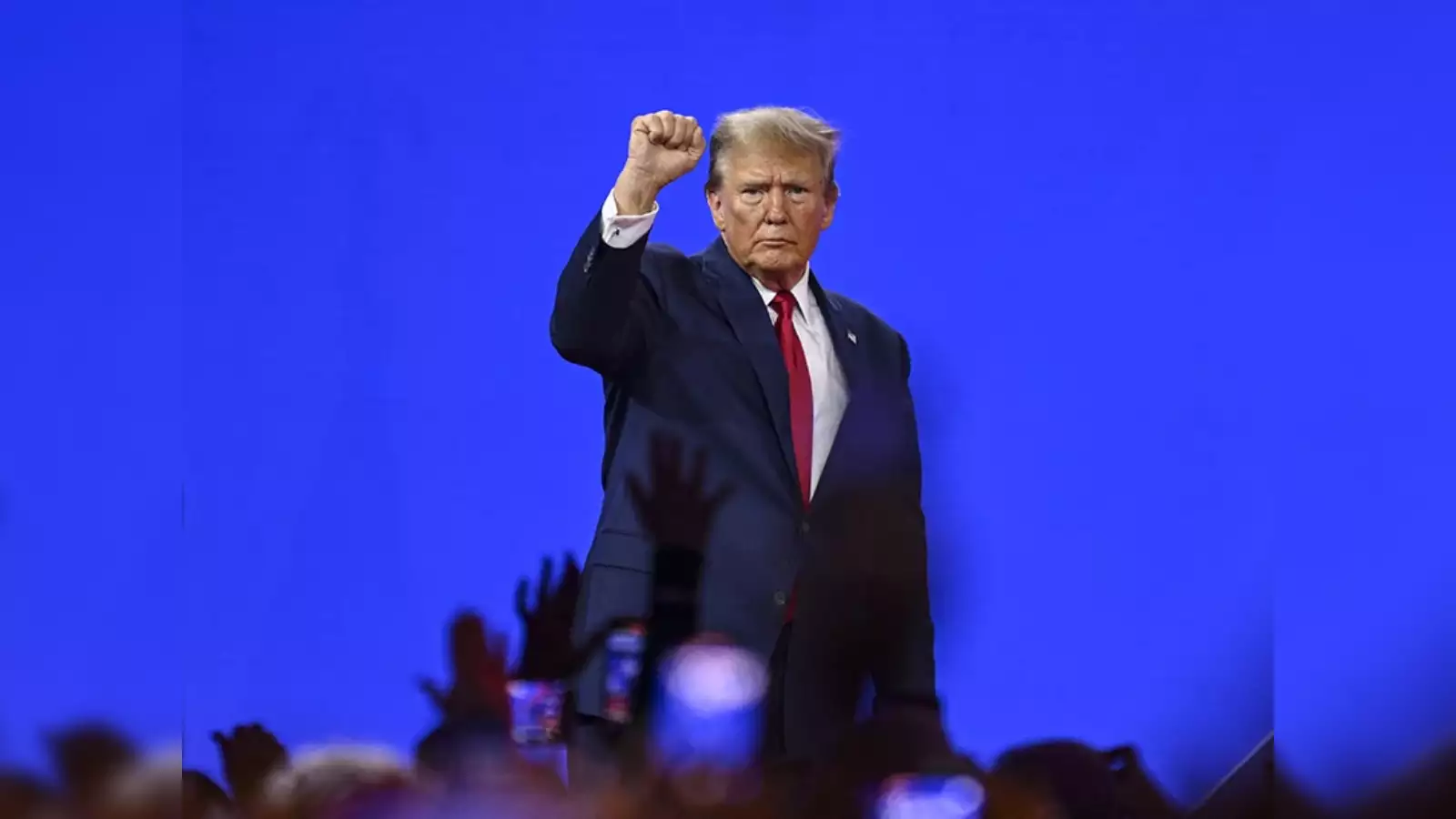
President Donald Trump reaffirmed his Trump tax cut commitment during a major address to Congress this week, a move initially welcomed by Wall Street. However, the optimism quickly collided with anxiety as he doubled down on tariffs and proposed repealing the CHIPS Act—a decision that could reshape America’s tech future. Here’s how these policies could ripple through the economy.
The Trump Tax Cut Commitment: A Lifeline for Markets?
In his speech, Trump urged lawmakers to extend the 2017 Tax Cuts and Jobs Act, which slashed corporate taxes from 35% to 21%. Investors have long credited these cuts with boosting corporate profits and economic growth. By pushing for their renewal, Trump aims to reassure businesses that his administration remains pro-growth.

- Why Investors Cheered: Lower taxes mean higher corporate earnings, which often lift stock prices.
- Consumer Spending Boost: Tax cuts could leave households with more disposable income, fueling demand.
- Long-Term Uncertainty: Critics warn that extending cuts without revenue offsets could widen the U.S. deficit, raising borrowing costs.
“The Trump tax cut commitment is a short-term win for markets,” said Anthony Saglimbene of Ameriprise Financial. “But if deficits spiral, the Fed might hike rates aggressively, hurting growth.”
Tariff Turmoil: Markets Wince at Trade War Risks
While tax cuts offered relief, Trump’s vow to impose reciprocal tariffs starting April 2 rattled investors. His plan includes:
- A 25% tariff on imports from Mexico and Canada.
- Doubling duties on Chinese goods to 20%.
Why Tariffs Worry Economists
- Supply Chain Disruptions: Higher import costs could squeeze manufacturers and delay deliveries.
- Inflation Fears: Consumers may face pricier electronics, cars, and everyday goods.
- Retaliation Risks: Trading partners like China could retaliate, hurting U.S. exporters.
The S&P 500 slid 1.5% following the announcement, erasing its gains for 2025. Tech stocks, which rely heavily on global supply chains, suffered the most—the Nasdaq briefly entered correction territory.
Read More : Wall Street Falls and Factories Struggle After Trump’s Tariff News
CHIPS Act Repeal: A Blow to U.S. Semiconductor Dominance?
One of the most surprising proposals was Trump’s call to repeal the CHIPS and Science Act, a $52.7 billion law passed in 2022 to revive domestic chip manufacturing. The act aimed to:
- Reduce reliance on Asian semiconductor suppliers.
- Strengthen supply chains after COVID-era shortages.
- Counter China’s growing tech influence.
Read More : Trump Urges Bidding War for TikTok Microsoft in Talks Ownership Shift TikTok Acquisition Bid Turbulence
Consequences of Repealing the CHIPS Act
- Investment Freeze: Companies like Intel and TSMC, which pledged U.S. expansions, might pause projects.
- Global Competition: South Korea and Taiwan could gain an edge in chip production.
- National Security Risks: Defense systems depend on domestically made semiconductors.
“Pulling back the CHIPS Act is a gamble,” warned Saxo’s Charu Chanana. “Without subsidies, America’s tech leadership could crumble.”
Market Outlook: Volatility Ahead
Investors now face a tug-of-war between pro-growth tax policies and protectionist trade measures. Key factors to watch:
- April Tariff Deadline: Will the U.S. soften its stance to avoid a trade war?
- CHIPS Act Debate: Can lawmakers block a repeal to protect tech investments?
- Inflation Data: Rising prices could force the Fed to delay rate cuts.
Art Hogan of B. Riley Wealth sums it up: “Markets hate uncertainty. Until these policies crystallize, expect wild swings.”
Read More : Donald Trump says he has no plan to remove Jerome Powell as US Fed chair
FAQ: Your Questions Answered
1. What is the Trump tax cut commitment?
Trump wants to extend the 2017 tax reforms, including corporate rate cuts, to spur economic growth. Critics argue this could worsen the deficit.
2. How do tariffs impact everyday consumers?
Tariffs raise import costs, which companies often pass to consumers through higher prices for goods like electronics and clothing.
3. Why does the CHIPS Act matter?
The law funds U.S. semiconductor production, reducing reliance on foreign suppliers. Repealing it could weaken America’s tech and defense sectors.
4. Are markets overreacting to Trump’s policies?
While tax cuts are bullish, tariffs and CHIPS Act risks create long-term uncertainty—a recipe for volatility.
The Bottom Line
The Trump tax cut commitment offers a glimmer of hope for businesses, but escalating trade wars and tech policy reversals threaten to overshadow its benefits. As investors brace for April’s tariff deadline, one thing is clear: the road ahead will be anything but smooth.












